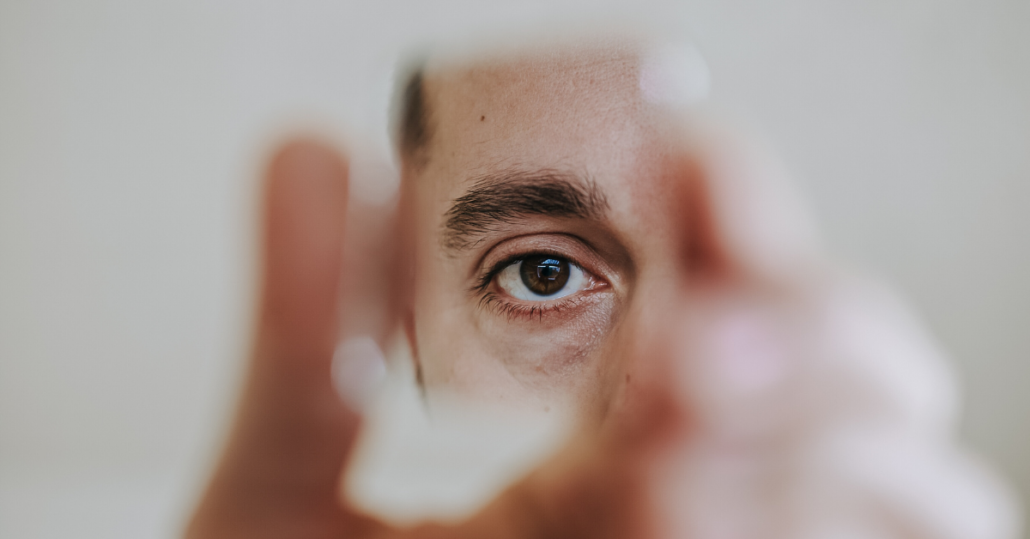What is Seroquel?
Seroquel is the brand name of quetiapine, an antipsychotic drug approved by the U.S. Food and Drug Administration (FDA) [1] to treat schizophrenia, major depression disorder, and bipolar disorder. In some cases, a doctor may prescribe this medication for insomnia or anxiety. It works to rebalance serotonin and dopamine to improve a person’s mood, behavior, and thinking. This drug comes in a tablet form that is meant to be ingested orally. Seroquel has two formulations: IR (immediate release) and XR (extended-release).
Seroquel is not a controlled substance, but there is still a risk of abuse or addiction. It is important to understand how this drug can affect people, especially if someone is taking it improperly. There are reports of misuse of the drug by crushing and snorting the tablets, injecting the medication, or combining it with cocaine and injecting the mixture.


Get Your Life Back
Find Hope & Recovery. Get Safe Comfortable Detox, Addiction Rehab & Mental Health Dual Diagnosis High-Quality Care at the We Level Up Treatment Centers Network.
Hotline (877) 378-4154What is Seroquel Used for?
Seroquel is a medication that works in the brain to treat schizophrenia. It is also known as a second-generation antipsychotic (SGA) or atypical antipsychotic. Seroquel (quetiapine) rebalances dopamine and serotonin to improve thinking, mood, and behavior.
Symptoms of schizophrenia include:
- Hallucinations — imagined voices or images that seem real
- Delusions — beliefs that are not true (e.g., other people are reading your thoughts)
- Disorganized thinking or trouble organizing your thoughts and making sense
- Little desire to be around other people
- Trouble speaking clearly
- Lack of motivation
Quetiapine may help some or all of these symptoms.
Quetiapine is also FDA approved for the following indications:
- Acute treatment of manic episodes of bipolar disorder
- Acute treatment of depressive episodes of bipolar disorder
- Maintenance (long-term) treatment of bipolar disorder (when used alone or with lithium or valproate)
- Adjunctive treatment of major depressive disorder. This means quetiapine is used in addition to an antidepressant to help treat depression.
Seroquel may also be helpful when prescribed “off-label” for delusional parasitosis, post-traumatic stress disorder (PTSD), generalized anxiety disorder, delirium in the intensive care unit, and obsessive-compulsive disorder (OCD). “Off-label” means that it has not been approved by the Food and Drug Administration for this condition.
Seroquel Dosage
Seroquel is usually taken 1, 2, or 3 times per day with or without food. The extended release should be taken without food or with a light meal (≤300 calories). Typically patients begin at a low dose of medicine and the dose is increased slowly over several weeks. The dose usually ranges from 100 mg to 800 mg. Only your healthcare provider can determine the correct dose for you. The extended-release tablets should be swallowed whole. They should not be chewed, crushed, or broken.
Get Help. Get Better. Get Your Life Back.
Searching for Accredited Drug & Alcohol Rehab Centers Near You? Or Mental Health Support?
Even if you have failed previously, relapsed, or are in a difficult crisis, we stand ready to support you. Our trusted behavioral health specialists will not give up on you. Call us when you feel ready or want someone to speak to about therapy alternatives to change your life. Even if we cannot assist you, we will lead you wherever you can get support. There is no obligation. Call our hotline today.
FREE Addiction Hotline – Call 24/7Seroquel Side Effects
Despite the many benefits of Seroquel (quetiapine), the drug carries a risk of side effects and some danger of lasting health consequences. Like many other psychoactive drugs, there is emerging evidence to suggest Quetiapine is sometimes misused. Although the drug’s use is generally safe, it is valuable to know and understand the possible repercussions of use in order to keep yourself and your loved ones safe.
Psychological
The use of Seroquel in people with depression has sometimes been linked with worsening of their clinical depression. As a result, individuals may experience suicidal behavior or suicidal thoughts. This has been of major concern in people taking this prescription drug and close monitoring is needed when taking quetiapine in major depressive disorder.
Neurological
Some individuals taking this medication may experience light-headedness and dizziness. This is usually postural meaning a sudden change in posture can worsen the symptoms. It is therefore recommended that all individuals taking the drug take extra care when standing up from a sitting position or sitting up from a lying position.
Some individuals also complain of feeling drowsy after taking Seroquel. The blurring of vision can also be a side-effect of quetiapine use. In elderly people who suffer from memory loss, such as dementia, Seroquel can sometimes cause psychosis. Moreover, there is an increased risk of stroke in elderly individuals taking this medication.
Another recognized Seroquel side-effect is the development of abnormal involuntary movements. This condition is known as tardive dyskinesia and needs treatment by a specialist neurologist.

Gastrointestinal
Some individuals taking Seroquel have difficulty opening their bowels and can experience constipation. This usually requires the addition of laxative agents to help restore normal bowel movement.
Metabolic
In individuals taking Seroquel, an increase in their blood sugar level has been noticed. In individuals with underlying diabetes mellitus, there could be a significant rise in the blood sugar levels leading to complications of diabetes such as diabetic ketoacidosis (a condition where the blood sugar levels are extremely high and there are breakdown products such as ketones present in the blood). Therefore, it is important for all patients with diabetes who take Seroquel to constantly monitor their blood sugar levels.
Weight Gain
Individuals taking Seroquel have also noticed an increase in their body weight, demonstrated in clinical trials.
Cardiovascular
Seroquel can cause postural hypotension, a condition where the blood pressure decreases when the individual changes posture. In addition, an increase in blood pressure has also been noticed, especially in children and adolescents. These must be closely monitored as elderly patients tend to fall and injure themselves if they have postural hypotension.
First-class Facilities & Amenities
World-class High-Quality Addiction & Mental Health Rehabilitation Treatment
Rehab Centers TourRenowned Addiction Centers. Serene Private Facilities. Inpatient rehab programs vary.
Addiction Helpline (877) 378-4154Proven recovery success experience, backed by a Team w/ History of:
15+
Years of Unified Experience
100s
5-Star Reviews Across Our Centers
10K
Recovery Success Stories Across Our Network
- Low Patient to Therapist Ratio
- Onsite Medical Detox Center
- Comprehensive Dual-Diagnosis Treatment
- Complimentary Family & Alumni Programs
- Coaching, Recovery & Personal Development Events
Warnings & Precautions
The FDA [2] requires all potential medication risks for Seroquel (quetiapine fumarate tablet, film-coated) to be disclosed to consumers, no matter how rare. Here are the warnings and precautions for Seroquel.
Increased Mortality in Elderly Patients with Dementia-Related Psychosis
- Elderly patients with dementia-related psychosis treated with antipsychotic drugs are at an increased risk of death. Seroquel is not approved for the treatment of patients with dementia-related psychosis.
Suicidal Thoughts and Behaviors
- Antidepressants increased the risk of suicidal thoughts and behavior in children, adolescents, and young adults in short-term studies. These studies did not show an increase in the risk of suicidal thoughts and behavior with antidepressant use in patients over age 24; there was a reduction in risk with antidepressant use in patients aged 65 and older.
- In patients of all ages who are started on antidepressant therapy, monitor closely for worsening, and for the emergence of suicidal thoughts and behaviors. Advise families and caregivers of the need for close observation and communication with the prescriber.
Cerebrovascular Adverse Reactions
- Increased incidence of cerebrovascular adverse reactions (e.g., stroke, transient ischemic attack) has been seen in elderly patients with dementia-related psychoses treated with atypical antipsychotic drugs.
Metabolic Changes
- Atypical antipsychotics have been associated with metabolic changes. These metabolic changes include hyperglycemia, dyslipidemia, and weight gain.
Seroquel and Alcohol
The National Institute on Alcohol Abuse and Alcoholism (NIAAA) estimates that the interaction between alcohol and medication may contribute to at least 25 percent of emergency room visits. Taking Seroquel and alcohol together may have serious consequences.
The FDA clearly directs people to “not drink alcohol while taking Seroquel” because it may make some of the side effects worse. Furthermore, the NIAAA [3] advises that drinking even a little alcohol is too much when a person is taking medications that interact with alcohol.
Seroquel and Alcohol Side Effects
When Seroquel and alcohol are used together, side effects that occur with either substance can worsen. These might include the following:
- Mood changes
- Head and body aches
- Constipation
- Dry mouth
- Nausea
- Vomiting
- Drowsiness
- Lightheadedness
- Sleepiness
- Fatigue
- Weakness
- Changes in appetite
- Weight changes
- Indigestion
- Constipation
- Changes in liver function
- Difficulty concentrating
- Unusual dreams
In severe cases, the increased side effects can be detrimental or even fatal, just as taking an excessive amount of either substance by itself could be dangerous. If you use alcohol and Seroquel in conjunction, the combined effect may impair judgment. This effect can lead to increased risks while driving, operating heavy machinery, or any other activity that requires focus and sharp motor skills.
Seroquel Overdose
A Seroquel overdose can be a potentially life-threatening issue. It is important that all people who are around this drug know how to recognize an overdose. Quick treatment for the overdose is necessary to reduce the risk of further issues for the person experiencing the overdose.
If someone takes too much Seroquel at one time, they are at risk for an overdose. Possible symptoms of an overdose include:
- Rapid heartbeat
- Dizziness
- Vomiting
- Fainting
- Drowsiness
- Seizure
There are some factors that can increase your risk for a fatal overdose, including mixing the drug with other substances that can also cause nervous system depressant effects. Opioids, alcohol, barbiturates, and benzodiazepines can cause the sedating side effects of Seroquel to intensify, leading to an overdose with relatively small doses of each individual drug.
It is possible for someone to experience a coma due to an overdose. When this happens, it is impossible to predict whether the person will wake from a coma. If they do wake up, there is the potential for additional complications, especially if the coma lasts a long time.
World-class, Accredited, 5-Star Reviewed, Effective Addiction & Mental Health Programs. Complete Behavioral Health Inpatient Rehab, Detox plus Co-occuring Disorders Therapy.
CALL (877) 378-4154End the Addiction Pain. End the Emotional Rollercoaster. Get Your Life Back. Start Drug, Alcohol & Dual Diagnosis Mental Health Treatment Now. Get Free No-obligation Guidance by Substance Abuse Specialists Who Understand Addiction & Mental Health Recovery & Know How to Help.
Seroquel Withdrawal
Withdrawal is a term used to describe a collection of symptoms that occur as a result of a substance abruptly leaving your body. The symptoms are unique to the substance but may be similar to the withdrawal symptoms of other substances in the same class.
Seroquel has the active ingredient quetiapine and is most often administered as an antipsychotic. Seroquel exerts several effects on the human central nervous system. Quitting Seroquel abruptly may lead to serious health issues by affecting the distribution of major neurotransmitters in the brain. Seroquel withdrawal symptoms can be extreme and pose a risk to wellbeing.
Some people may experience different levels of withdrawal from this drug due to particular health conditions. The concern with Seroquel withdrawal is that many individuals try to get off the drug without proper information or consultation with a medical professional. There are significant risks connected with stopping Quetiapine abruptly, especially for those who may be using very high doses of this medication. There are several options to Quetiapine treatment discontinuation that will ensure the patient safely gets off the drug with minimal to no side effects.
Quetiapine Withdrawal Symptoms Include:
- Itchy red skin
- Shortness of breath
- Vomiting
- Insomnia
- Inflamed stomach
- Dehydration
- Fatigue
- High anxiety
- Depression and suicidal thoughts
- Rapid weight loss or weight gain
- Difficulty in seeing
- Kidney problems
- Low libido
- Hallucinations
- Low appetite
- Frequent urination
Treatment for Seroquel Addiction
In some individuals, drug addiction results from an underlying mental health issue. In others, addiction develops first, and mental health symptoms arise later. Sometimes, mental health symptoms may be worsened by drug abuse.
Although there is no single cause for addiction, a mental health issue may increase the likelihood of developing an addiction and vice versa.
People who are suffering from an addiction and a mental health problem should seek treatment for a co-occurring disorder. According to the Substance Abuse and Mental Health Services Administration (SAMHSA), this type of treatment can:
- Lower the relapse rate
- Reduce the number of suicide attempts
- Lead to long-term sobriety
Many inpatient rehab centers offer dual diagnosis treatment where individuals receive all the medical, therapeutic, and holistic care they need to heal mentally, physically, emotionally, and spiritually.
Now that you’ve answered the question “what is seroquel?” it is important to follow the special precaution to avoid overdose, addiction, and withdrawal. If someone struggles with Seroquel addiction because of its intense and often dangerous Seroquel side effects and withdrawal symptoms, that person needs to consider inpatient drug rehab. We Level Up NJ addiction specialists are standing by to help.

Experience Transformative Recovery at the We Level Up Treatment Center.
See our authentic success stories. Get inspired. Get the help you deserve.



Start a New Life
Begin with a free call to an addiction & behavioral health treatment advisor. Learn more about our dual-diagnosis programs. The We Level Up treatment center network delivers various recovery programs at each treatment facility. Call to learn more.
- Personalized Care
- Caring Accountable Staff
- World-class Amenities
- Licensed & Accredited
- Renowned w/ 5-Star Reviews
We’ll Call You
Sources:
[1] [2] FDA – https://www.accessdata.fda.gov/drugsatfda_docs/label/2006/020639s026lbl.pdf
[3] NIAAA – https://www.nih.gov/news-events/news-releases/nih-study-reveals-many-americans-risk-alcohol-medication-interactions#:~:text=%E2%80%9CCombining%20alcohol%20with%20medications%20often%20carries%20the%20potential,they%20should%20be%20aware%20of%20the%20possible%20harms.%E2%80%9D